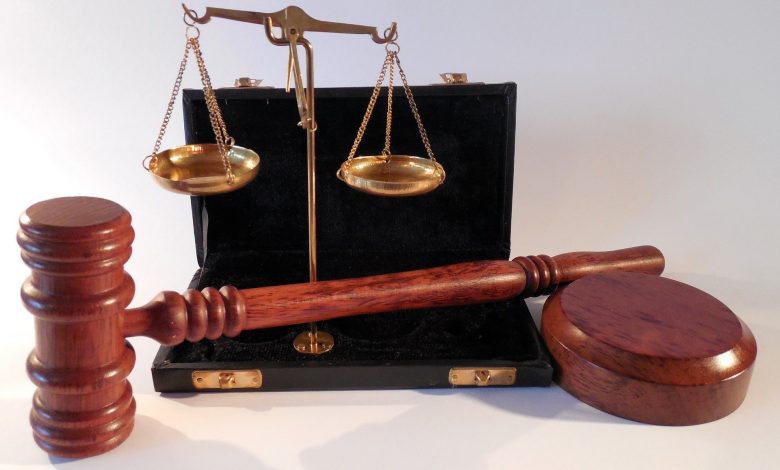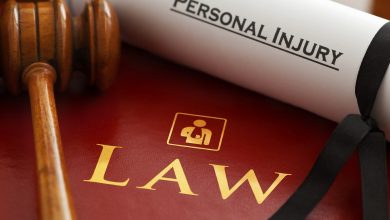What Do I Do If I’m Charged with a Felony?

Hopefully you’ve read about all of the different types of felonies on our site, and you used it to be a law abiding citizen. But if you find yourself with a felony charge – whether you’re guilty or not, you’re probably panicked and want to know where to start. Take a breath, and keep reading. We’ve got you covered.
Your First Step? Call a Lawyer.
You don’t want to get too far into the process before consulting your lawyer, whether it’s one appointed to you or one that you’ve hired for your case. They will help you avoid mistakes early on that may affect you down the line, so you want to get this out of the way as soon as possible. Make these arrangements even from jail, if needed, and they’ll be there to counsel you on what your next steps are, what type of defense you should take, and what you should and shouldn’t say to the cops.
Choosing a lawyer can be a difficult process, as you want to ensure that you have one that will fit your budget, but also provide you the best defense possible. The first step to narrowing them down should be finding a law firm or lawyer that specializes in the type of felony you’ve been charged with. They will have the most experience and expertise, allowing you to be in the best hands possible. Be sure to read reviews before settling on one and make sure you’re clear on how they charge and what type of a price tag you’re looking at for their services.

The Process
Whether it’s on a state or federal level, it’s going to be a pretty similar process. The process will vary somewhat, however, state-to-state, as well as depending on the seriousness of the conviction, whether you waive any rights, and what methods your lawyer decides to use. The US Department of Justice (DOJ) outlines ten steps to the federal criminal process, which provides a basic outline on what to expect in most cases.
Investigation
In a case where you weren’t caught in the act, giving probable cause for your arrest, this part will have occured before they even arrest you. They somehow become aware of a crime you committed, and this begins an investigation. Certain agencies are responsible for this role in the federal government, including the:
- Federal Bureau of Investigation (FBI)
- Drug Enforcement Administration (DEA)
- Bureau of Alcohol, Tobacco, Firearms and Explosives (ATF)
- United States Secret Service (USSS)
- Homeland Security Investigation (DHS/HSI)
Which organization will lead the investigation will depend on the category the crime falls under, and sometimes crimes that have multiple parts or involve multiple sectors will see teamwork between several of them. They’ll begin by looking into the crime as much as possible, which may include searching your house or other property with a warrant to obtain information. Additionally, they’ll probably question you, people that may have information, and others involved with the crime, if applicable. The evidence that they collect can be classified as direct evidence – evidence of someone who directly witnessed or participated in the crime – or circumstantial evidence – reasonable inferences made off of knowledge.
After going through all of the evidence that they can find, they’ll then present it to the federal prosecutor for them to understand what evidence is stacked against you. It’s up to the prosecutor to then decide if there’s enough evidence to take you in front of the grand jury to attempt to convict you of the crime, which leads to your felony charge.
Charging
In felony cases, there’s this extra step of going before the grand jury. Before charges are given, the prosecutor must present the grand jury – in a very confidential setting – with their evidence and witness testimonies where they decide if there’s enough evidence against you to pursue the case. Charges then come in the form of an indictment – a formal notice of your charges, meaning that you have to come before the court to plead your case and receive a sentence. Technically, only most federal proceedings require this step, but some states find it an important part of their process as well. This is the point where you definitely need to get a lawyer.

Initial Hearing
Sometimes called an arraignment, this is when you are brought in front of a judge for you to have your charges explained to you, establish your attorney, decide if you must stay in prison until your trial, and allow you to plead guilty or not guilty. In accordance with your right to a fair and speedy trial, this should happen on the day of or the day after your arrest. If you are allowed to leave prison until your trial, you’ll have to pay bail, which is set by the judge at this point. The amount of your bail will depend upon the type of charge, your prior convictions, your employment status, whether you have family in the area, if you’ve reportedly threatened witnesses, and other aggravating factors, but the biggest factor is your likelihood to be a danger to society in your time in between being released and your trial. You should also learn the date for your next trial at this hearing.
Discovery
This is the period where both the prosecutor and your lawyer are preparing their arguments, sifting through evidence and how it applies to the laws regarding your crime. During this time, witnesses will be gathered and questioned in order to get more information on the prosecution or defense of your case. These witnesses can be sorted into three types:
Lay witness: This is a witness that saw events relevant to the case transpire and reports what they saw.
Expert witness: An expert witness is what it sounds like – an expert that can provide further insight into information on the crime, forensic evidence, the defendant themself, and the possibility of the crime happening, among others.
Character witness: A character witness usually knows the defendant in some way and is there to report on whether this is within their typical behavior.
Discovery itself refers to when the prosecution shares with the defense what evidence they have against you, no matter whether it proves your guilt or innocence. The prosecution runs the risk of having punishments taken against them and their case if they do not provide your lawyer with every bit of evidence they discover, as the defense has the right to be aware and prepare their case around those materials as well.
Plea Bargaining
If this step is successful, it pretty much puts an end to this whole process. It involves admitting guilt and going before the court to receive your sentencing after this. It doesn’t mean that you’re going to get a sentence less than justice or the law requires, but it may keep you from getting a heavier sentence than if you’re proven guilty in court.

Preliminary Hearing
This is another one of those rights that you can waive, but you should only do so if there is abundant evidence against your case. If you believe the prosecution can’t prove your guilt in court, then taking it to a preliminary hearing may be a way to avoid all of that. If you haven’t left jail on bail, this must be done within 14 days. Otherwise, it must be done within 21.
The rules are a little more lax here, as it’s kind of like a mock trial where more evidence can sometimes be presented than in the actual trial. The trial will go about similarly to how the actual trial will. This time, it’s up to the judge to determine if there’s enough evidence to pursue your case. If not, it will be dropped; it there’s enough, you’ll move on to the next step and get a trial scheduled.
Pre-Trial
During this time, the prosecutor or defense can file motions that determine important aspects of the trial, which the judge will then decide upon. They typically come in three different types:
Motion to dismiss: If there’s further protest on whether there’s enough evidence to prosecute or whether it really is a crime that was committed, there can be files submitted to drop the charge. This is particularly applicable in cases where there are multiple charges against the defendant, as there may be certain charges within those that the government doesn’t has a good enough case for. It’s also helpful when new evidence comes to light that exonerates the defendant.
Motion to suppress: Because the prosecution is required to share all evidence with the defense, there may be pieces of evidence that the defense believes shouldn’t be allowed to be used in the trial, such as evidence that was obtained illegally. This ensures that all constitutional rights are being upheld.
Motion for change of venue: This will typically happen when it’s in the interest of the defense to change locations, usually for the safety of and adherence to the rights of the defendant – like ensuring they have an impartial jury for their case.

Trial
This is the big one. The whole process up to this point may have taken weeks or months, as it takes time for the prosecution to build up a good enough case for your guilt that they believe won’t be questionable in court, or to prepare for any defenses or other aspects that may arise in the trial. The judge is not the one who determines guilt; they’re responsible for the sentencing. One of the rights afforded to you even when you’re being accused of a crime is your right to an impartial jury of your peers. They are the ones who will be deciding if you’re guilty or innocent.
Here, the prosecutor will explain all of the evidence they’ve dug up and why they believe you are guilty. There will also be witnesses called, and you will most likely be called to tell your side of the story. This is something that you and your lawyer should thoroughly discuss before the time comes in order to ensure that you know what you’re advised to say, as long as it’s the truth. The DOJ describes the judge as a referee – someone who sits and watches things play out, determines which plays are valid and what evidence can be shown, and to ensure everything is done fairly and in accordance to your rights.
The trial will begin with a jury selection. There will be twelve jurors chosen among those registered to vote, and the prosecution and defense can then ask questions to determine who they intend to keep and who to send home. They will ensure that the jurors they’ve chosen do not have a bias against you or your case in anyway – they must be entirely impartial. However, they cannot make decisions based off of profiling; choices can’t be made off of race, gender, or other identifying factors.
Next will come the brief opening statements where both sides will lay things out much like an introduction to an essay. They’ll describe what they intend to prove that day – your guilt or your innocence, what manner they plan to go about it, and things they want the jury to keep in mind throughout the trial. Then they’ll go right into witness examination.
Witness examination begins with the prosecution where they can also introduce relevant evidence to the case. They can spend as long as they want with the witness, as long as the judge deems all questions relevant to the case. Either side can object to the line of questioning at any point, as long as it’s outside the witness’ knowledge of the crime, they’re arguing versus asking substantial questions, or it has become irrelevant to the case. These objections may also include hearsay, meaning the witness said something that they heard or read about secondhand. The judge will sustain the objection or overrule it.
Then, the defense has their time with the witness. This is where they’ll cross examine to find flaws in their story and other ways to prove your innocence. They may also do this by attacking the witness’ credibility, claiming that their testimony cannot be trusted for any number of reasons.
Next, the prosecutor uses redirect examination in order to explain any aspects that may have been confusing and to ensure that they leave their argument on a good note before they rest their case.
Once this happens, the defense has their turn to present to the jury. They have the option to call up their own witnesses, even you, and present their defense to the evidence provided by the government. This is another optional aspect. If your lawyer believes that there truly is no case, and they feel that it was clear through the line of questioning, they may decide not to provide a defense. This doesn’t necessarily mean that the jury will find you guilty by default because you decided not to testify or feel the need to provide a defense. More often than not, the defense will still provide an argument for your innocence versus leaving it with the prosecution’s case.
They’ll then wrap it up with closing arguments, like the conclusion of the essay, discussing what evidence was brought forth and what it really proves. The judge will then discuss with the jury what is expected from them through the process and any information they need to know to make a decision of guilty or not guilty. They’ll then deliberate, where they’re only allowed to have contact with the judge by note, which is read to both the prosecution and defense. In the case of not guilty, you’re free to go home. However, if you’re guilty, it’ll go to post-conviction.

Post-Trial
This is another period to make motions, this time about the case’s outcome. These come in the form of:
- Motion for a new trial: This is when they believe justice wasn’t served and want a new trial.
- Motion for judgment of acquittal: This is a request for the judge to override the jury’s decision.
- Motion to vacate, set aside, or correct a sentence: And this one is usually used to fix clerical errors.
Sentencing
If the jury finds you guilty, the judge will then hold another trial for them to determine your sentence. For felonies, this can range from serious jail time, to fines, and other penalties. It will usually be based off of predetermined sentences from Congress, or through the sentencing guidelines of the United States Sentencing Commission. They’ll also look at any aggravating circumstances and your prior conviction. After factoring all this, they’ll come up with your punishment.

After this process you have the right to appeal your verdict all the way up to the Supreme Court, if they accept your case. This process can be long and difficult, and it’s best to have a lawyer help you on your journey. You still have rights every step of the way, and they’re also there to ensure those aren’t violated. By being familiar with the process, you can work with your lawyer to ensure you’re prepared and have the best defense possible.



